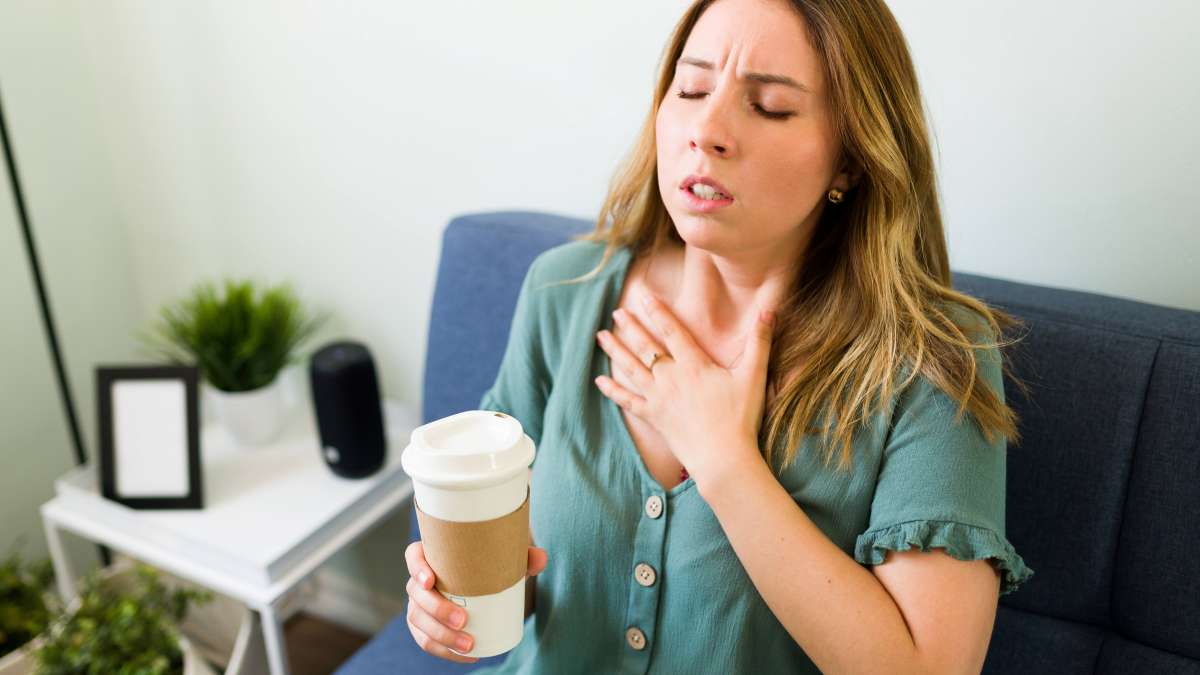Caffeine is a common part of American culture and diet. More than 90% of people in the United States consume caffeine, and 75% of that group admits to having it daily. Many people say it helps them feel more awake and alert.
But that same stimulation that provides the get-up-and-go in your morning cup of joe may also be contributing to anxiety. Caffeine can promote anxiety in several ways by:
Blocking your ability to relax: When caffeine crosses into your brain, it binds itself to adenosine, a neurotransmitter that helps your body relax. When caffeine and adenosine connect, adenosine cannot do its job, leaving you feeling alert and possibly anxious.Stimulating your central nervous system (CNS): Caffeine triggers your “fight or flight” stress response, which can increase your heart rate, blood pressure and feelings of restlessness — similar to symptoms of anxiety. The increase in adrenaline may even trick your body into thinking disaster is looming, causing you to feel anxious.
Keep in mind, you may be getting more daily caffeine than you think. Caffeine is often found in surprising places including chewing gum, ice cream and over-the-counter medications.
While the associations between caffeine and anxiety are not yet fully understood, researchers continue to make progress. Here are five things research says about the connection between caffeine and anxiety:
1. Caffeine increases the risk of anxiety for most people
The average American adult drinks 12 ounces of caffeinated beverages daily. For most people, having a cup of coffee or tea will not cause you to develop an anxiety disorder — though people often report subjective anxiety (feeling anxious) after having caffeine. Several studies do conclude that, in general, consuming caffeine may be significantly associated with an increased risk of anxiety — even in people who do not currently have psychological issues.
There’s no established data connecting exact amounts of caffeine with a specific risk for anxiety. But if your daily use of caffeine is enough that it interferes with your sleep, it can also raise your risk significantly. Chronic sleep deprivation is closely associated with anxiety.
2. The amount of caffeine you consume matters
Experts agree that 400 milligrams (mg) of caffeine daily is safe for most adults. To put it in perspective, a 12-ounce cup of regular black coffee can have up to 247 mg of caffeine. The same amount of black tea has 71 mg.
That safe amount also seems to be the tipping point when it comes to anxiety risk. People who consume 400 mg or more of caffeine daily have a much higher risk of anxiety than those who consume less than 400 mg.
3. Caffeine can worsen existing anxiety
If you already have anxiety, high amounts of caffeine may not make you more anxious. What it can do is amplify your existing symptoms — especially increased heart rate and blood pressure — and make them feel more intense.
People who experience panic attacks may also want to be cautious about excessive caffeine consumption. In a review of research involving a total of more than 235 people, more than 50% of participants had panic attacks following caffeine consumption. Most of those people (98%) have had a panic attack previously. The consumption amounts varied by study, but all were more than 400 mg. None of the participants who received a placebo (no caffeine) had a panic attack.
4. Caffeine sensitivity is real
Some people are naturally more sensitive to caffeine because of how they metabolize it. That’s why some people aren’t bothered by caffeine close to bedtime, while others may be up for hours.
Caffeine is typically absorbed into the bloodstream within 45 minutes. Your liver removes caffeine from your blood and breaks it down to exit through your urine. However, liver enzymes such as CYP1A2, which helps break down 95% of caffeine, can vary in how well they do their job. If your CYP1A2 enzymes are efficient, they pull caffeine from your bloodstream quickly, so you may not feel the effects of caffeine as much or for as long as someone else. For people who digest caffeine slowly, caffeine may hit you harder with longer-lasting effects.
How alert or jittery you feel after consuming caffeine may also depend on the genes involved with the adenosine (relaxation) receptors in your brain. The ADORA2A gene determines how resistant adenosine is to binding with caffeine molecules. If your adenosine receptors are willing to bind with caffeine, you are more likely to feel alert — and therefore more anxious. The less adenosine binds with caffeine, the more it can do its job and the more relaxed you’ll feel.
5. Quitting caffeine may make anxiety worse before it gets better
Many people develop physical, emotional and psychological dependence on caffeine since it is a stimulant — and therefore a psychoactive drug (one that affects the mind). Withdrawing from caffeine can produce symptoms that start within 24 hours of quitting and can last up to nine days.
The severity of your symptoms will vary depending on how much caffeine you consumed daily. But withdrawal symptoms, such as headache, increased heart rate, gastrointestinal distress and hand tremors can overlap with anxiety symptoms. You may also find yourself anxious about facing the day without the boost that comes from caffeine. But rest assured, the symptoms of caffeine withdrawal will fade over time.

